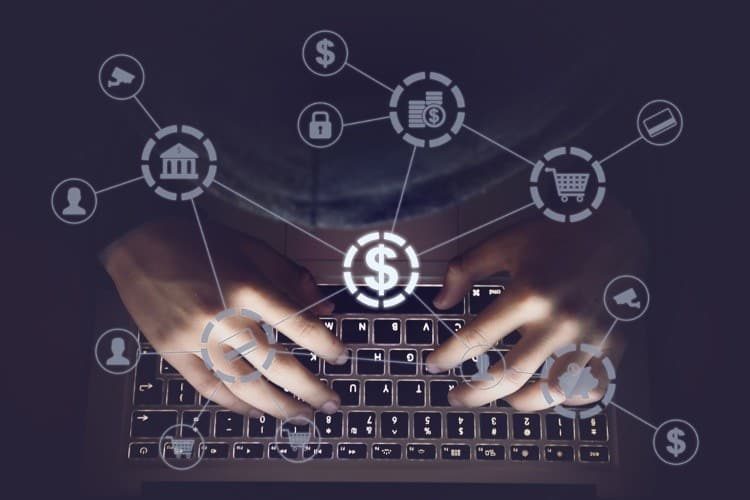
Nearly $100 billion of the $3.5 trillion given out by the U.S. government for COVID relief programs has been stolen since the beginning of the pandemic, the Secret Service revealed on Tuesday.
According to a press release on the matter,
“The Secret Service currently has more than 900 active criminal investigations into fraud specific to pandemic-related relief funds,” said Roy Dotson, Assistant Special Agent in Charge. “That’s a combination of pandemic benefits and all the other benefits programs too. Every state has been hit, some harder than others. The Secret Service is hitting the ground running, trying to recover everything we can, including funds stolen from both federal and state programs.”
The stolen funds were diverted mainly from unemployment insurance (UI), the Small Business Administration’s (SBA) Paycheck Protection Program, and other benefit programs set up to dole out government funds nationwide.
So far, the Secret Service has been able to seize more than $1.2 billion and return more than $2.3 billion of fraudulently obtained funds and arrest 100 individuals responsible for unemployment insurance and SBA loan fraud.
The Secret Service has tapped Assistant Special Agent in Charge (ASAIC) Roy Dotson to lead the pandemic fraud investigation and recovery effort, per the release. Exploitation of pandemic-related relief is said to be “an investigative priority” for the Secret Service and its partners.
Since the fraud happens online, the Secret Service has established a Cyber Fraud Task Force (CFTF) partnering with federal and local authorities, as well as foreign law enforcement, academic, and private-sector partners which, per the Service, has already prevented “billions in financial loss.”
A major part of the effort will be dedicated to cryptocurrency investigations centering on unsuspecting money mules who have moved stolen funds from one account to another — a trend that has seen a dramatic uptick during the pandemic, according to Dotson.
Dotson told CNBC that he has never seen fraud perpetrated “at this scale” during his 29 years of law-enforcement service and more than 20 years of fraud investigations.
Dotson noted that the ease of obtaining the funds has made it easier for criminals to take advantage of the government handouts.
“There’s no doubt that the programs were easily accessible online. And so, with that, comes the opportunity for bad actors to get into that mix,” Dotson explained. “It was necessary to try to get these funds out to people that were truly hurting, and no fault of anybody.”
The agent added the bad actors who stole a whopping 3 percent of COVID funds included transnational and domestic organized criminal groups, and individuals who abused the system.
The task to recover all the money will be a difficult one.
“The primary difficulty is the sheer scope of the amount of fraudulent, you know, loans, or unemployment insurance benefits ever distributed,” Dotson said. “And the number of individuals that receive those, whether they were a money mule, or the actual recipient is just enormous.”
A Secret Service spokesperson told the outlet that among the funds that were already recovered were hundreds of millions sent to Green Dot and PayPal online payment systems.
“After the Secret Service alerted the private sector early on about the emerging fraud, numerous financial institutions proactively identified, investigated, and safeguarded against suspected fraudulent pandemic relief funds,” the spokesperson told CNBC. The person added that, thanks to collaboration between the Secret Service and those corporations, $400 million in fraudulent funds were seized.
Congress passed the $2.2 trillion Coronavirus Aid, Relief and Economic Security (CARES) Act in March 2020. The Act created the Paycheck Protection Program that provided forgivable loans to small businesses with an initial $350 billion in funding, which later increased to $669 billion by subsequent legislation when the initial funds ran out.
The Labor Department’s Office of Inspector General (OIG) sounded the alarm that “at least $89 billion of the estimated $896 billion in UI program funds could be paid improperly, with a significant portion attributable to fraud” in a report released in March 2021.
According to the report, since the start of the pandemic and “unprecedented levels of federal funding” allocated for UI, the OIG has reviewed more than 15,000 investigative matters and has opened more than 2,600 complaints and investigations relating to UI benefits paid under the CARES Act and subsequent spending legislation. As a result of the surge in complaints, UI investigations accounted for 76 percent of the OIG’s investigative case inventory as of March, compared with 12 percent prior to the pandemic.
At the same time, the Justice Department bragged in its March 2021 release that “anticipating the need to protect the integrity of these taxpayer funds and to otherwise protect Americans from fraud related to the COVID-19 pandemic, the Department of Justice immediately stood up multiple efforts dedicated to identifying, investigating, and prosecuting such fraud,” adding that the measures “serve as a model for proactive, high-impact white-collar enforcement, and demonstrates our agility in responding to new and emerging threats.” The department further proudly described the new bureaucratic apparatus it has built to prevent fraud.




